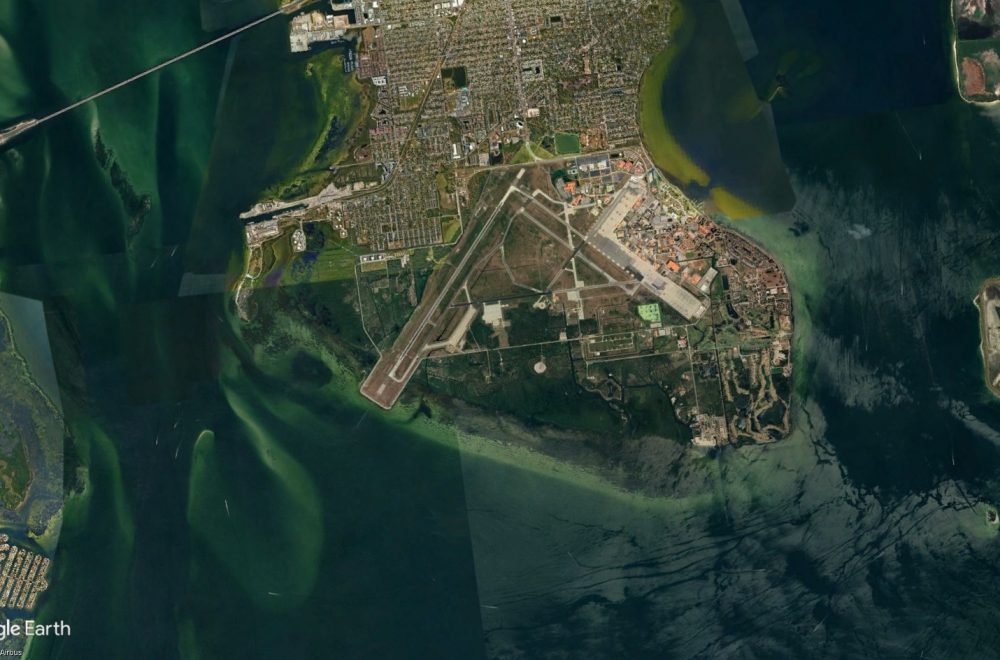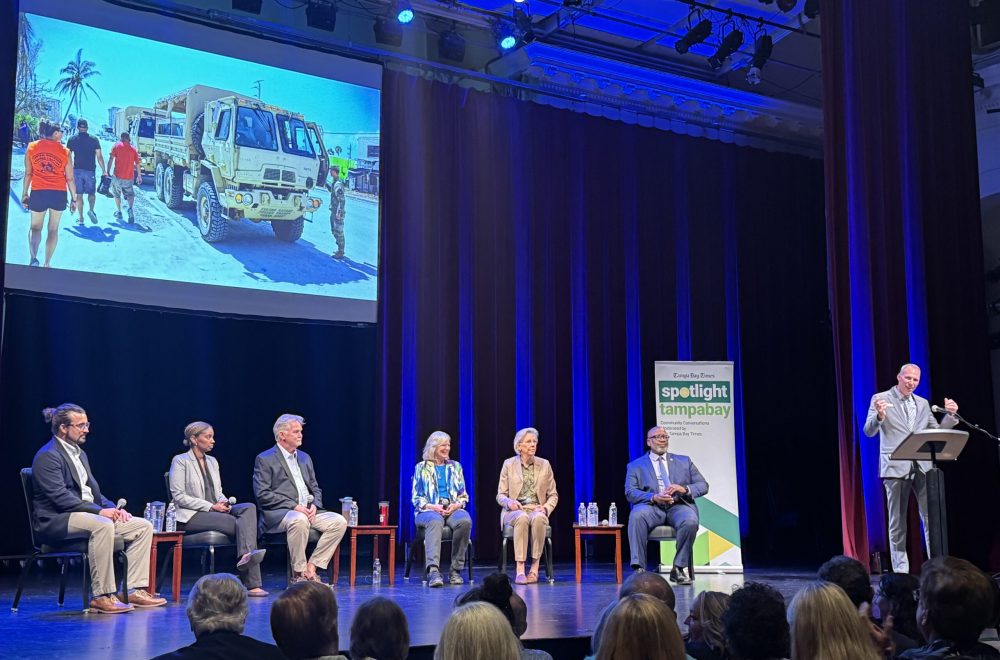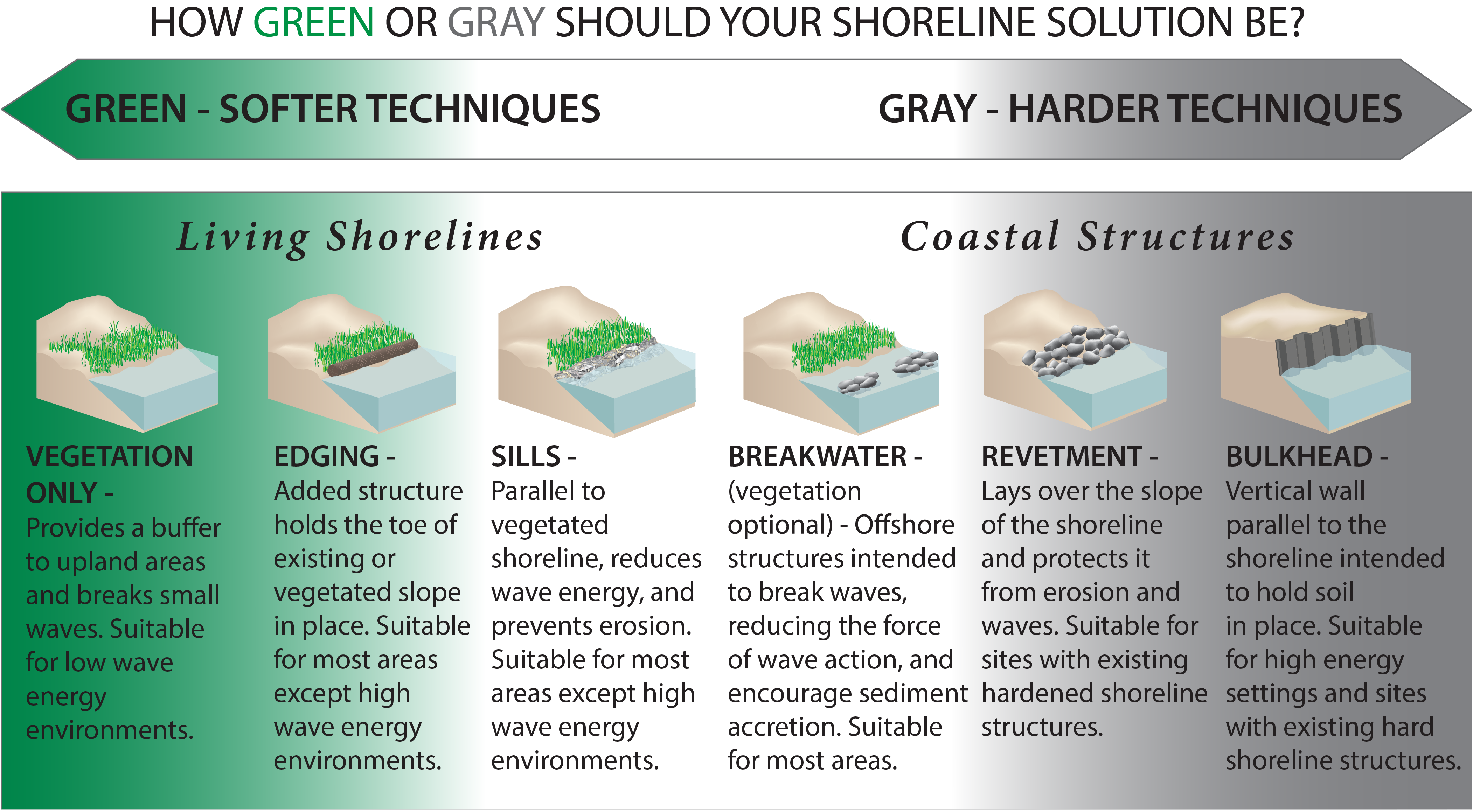The plan will be rolled out to area governments to help guide actions on combatting flooding, extreme weather and other impacts of a changing climate.
PINELLAS PARK, Fla. (November 21, 2022) – The Tampa Bay Regional Planning Council (TBRPC) last week approved the Regional Resiliency Action Plan (RRAP), a resource for local governments as they implement policies to help communities become more resilient to flooding, extreme weather, and other impacts of a changing climate.
The Tampa Bay Regional Resiliency Coalition, the 16th group of its kind in the nation, was formed in 2018 as an initiative of the Regional Planning Council. The first goal of the 32-member local government coalition was to create a Regional Resiliency Action Plan.
“Collaborating across jurisdictional lines on the RRAP has taken our regional resiliency ideas and goals and turned them into quantifiable actions,” said Pinellas County Commissioner Janet Long, who helped launch the initiative as Chair of the TBRPC in 2018 and later became Chair of the Coalition.
The RRAP includes 11 high-level goals with dozens of objectives and recommended actions for local implementation and regional collaboration.
“We are excited to take this significant step as we make the Regional Resiliency Action Plan a reality,” said Brandi Gabbard, TBRPC Chair and Vice-Chair of the St. Petersburg City Council. “Our recent hurricane impacts have only amplified how important it is for cities and counties to work together effectively in making our communities more resilient.”
The Tampa Bay Regional Planning Council and Coalition members will begin forming working groups in early 2023 to work towards implementation of the plan. The TBRPC will be working with local governments on prioritizing resiliency-related infrastructure projects, promoting sustainable and resilient housing, protecting the region’s fish and wildlife, and helping businesses better prepare and recover from extreme weather and storms.
In just one example of how the RRAP could lead to actions at the local level, TBRPC leaders are beginning conversations with local jurisdictions about possible ordinances related to the Coalition’s Resilient Uniform Shoreline Model Ordinance. The ordinance is designed to promote activities that would make shorelines more resilient to flooding and extreme weather. Best practices may include taking such steps as upgrading seawalls or taking innovative steps to redirect or control flooding.
“Moving the Regional Resiliency Action Plan forward will be a collaborative effort, with a wide variety of stakeholders taking part,” said Hillsborough County Commissioner Harry Cohen, a leader for the Coalition’s efforts. “Hillsborough County is implementing major resilience initiatives, from our One Water Plan to a robust Vulnerability Assessment that includes consideration of social vulnerability. The RRAP will assist in those efforts.”
The RRAP is a robust yet flexible tool for local governments to use as they decide which goals and priorities work best for their individual communities. The goals in the plan cover a wide range of important priorities, from transportation to neighborhood-level resilience to food policies, all reflecting the goals and priorities of member governments.
“The one unifying factor that our local communities share is a commitment to increasing the resilience of their communities to the impacts of extreme weather and climate change,” said TBRPC Executive Director Sean Sullivan. “The Tampa Bay Regional Planning Council is proud to serve local governments in their endeavors to create more sustainable communities throughout our region and beyond.”
About the Tampa Bay Regional Planning Council
The Tampa Bay Regional Planning Council brings together governments to coordinate planning for the community’s future and provide an opportunity for sharing solutions among the local government jurisdictions in the Tampa Bay region. The TBRPC works with six counties and 21 municipalities as they make long-range plans related to the future of the Tampa Bay region. The Council’s work focuses on resiliency, planning for climate change and sea level rise, environmental management, water quality, emergency preparedness planning, protection and restoration of the Tampa Bay estuary, economic analysis, coastal zone management, housing and infrastructure analysis, and stormwater management.
About the Tampa Bay Regional Resiliency Coalition
The Tampa Bay Regional Resiliency Coalition was officially formed in October 2018 and grew to 32 members in 2022. Currently, the Coalition includes seven counties, 24 cities, and more than 90 partners which include businesses, nonprofit community organizations, universities, and advocacy organizations.
Read the op-ed in The Invading Sea from TBRPC executive director Sean Sullivan.




